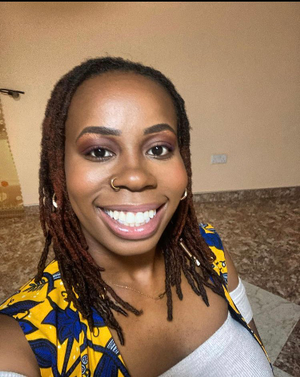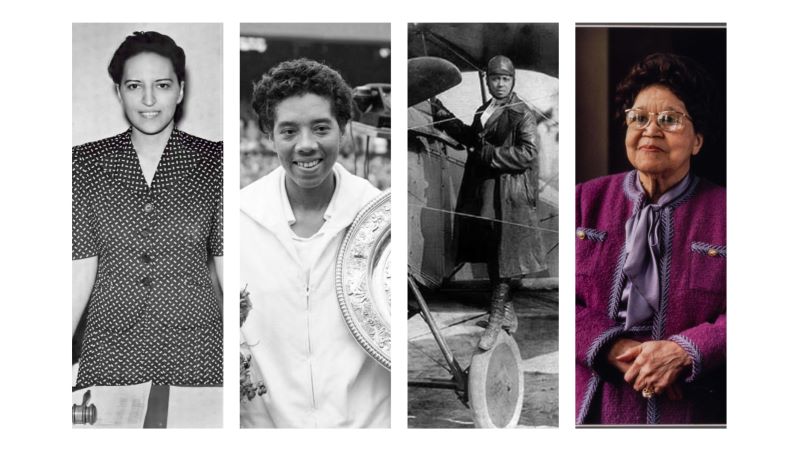“If there is no struggle, there is no progress” -Nelson Mandela
“Hold fast to dreams, for if dreams die, life is a broken- -winged bird that cannot fly” -Langston Hughes
Happy Black History Month. For many, Black history month is a continuation of the yearlong celebration and acknowledgment of Black contributions, Black struggles, Black triumphs, and Black progress. To celebrate this joyous occasion, we are highlighting 8 Black heroes/heroines to include in your Black history month celebrations, campaigns, and courses. Let’s jump right in!

( A Celia Cruz mural. Image by Terence Faircloth via Flickr)
Celia Cruz, the legendary Afro-Cuban singer, dancer, and actress who rose to fame in Cuba and subsequently around the world, and became known as the Queen of Salsa during the 1970s. She was proud of her Afro-Latina roots and included African-descended drums and rhythms in her music. Her music genres spanned from Afro-Cuban styles such as rumba, afro, and bolero to pop, salsa, and more. Some of her songs were odes to Yoruba deities and were sung in Lucumi, a Yoruba-based Cuban language. When Cruz became exiled from her native land of Cuba, she settled in the United States and continued her magnificent career. The Afro-Cuban singer, known for her signature line ‘Azucar’, was outspoken against Fidel Castro’s communist regime in Cuba.

( Nikki Giovanni. Image by Brett Weinstein via Wikimedia Commons)
Nikki Giovanni, the Knoxville, Tennessee-born, world-renowned poet, graduated from the HBCU Fisk University, where she assisted in the re-establishing of the Student Non-Violent Coordinating Committee (SNCC), worked with the Fisk Writers Workshop, and collaborated with other notable writers. Giovanni is currently a University Distinguished Professor at Virginia Tech. Giovanni’s works, including poetry collections and books, tell intriguing stories through the lens of culture, history, Black identity, love, spirituality, solidarity, and life experiences. In Poem For A Lady Whose Voice I Like, Giovanni writes:
“so he said: you ain’t got no talent
if you didn’t have a face
you wouldn’t be nobody
and she said: god created heaven and earth
and all that’s Black within them
so he said: you ain’t really no hot shit
they tell me plenty sisters
take care better business than you
and she said: on the third day he made chitterlings
and all good things to eat
and said: “that’s good”
so he said: if the white folks hadn’t been under
yo skirt and been giving you the big play
you’d a had to come on uptown like everybody else
and she replied: then he took a big Black greasy rib
from Adam and said we will call this woeman and her
name will be sapphire and she will divide into four parts
that simone may sing a song
and he said: you pretty full of yourself ain’t chu
so she replied: show me someone not full of herself
and i’ll show you a hungry person”

( A mural of Aimé Césaire. Image by jepuh via Wikimedia Commons )
Aimé Césaire, a Martinique-born, French-naturalized writer, politician, and thought leader, was one of the founders of the Negritude movement. In the 1930s and 1940s in Paris, French-educated Africans and Afro-Caribbeans such as Césaire sought to reclaim indigenous African values and restore pride in African traditions during colonialism through a literary revolution. This revolution, known as the Négritude movement, was marked by literature in the French language. In his poem Cahier d’un retour au pays natal, Césaire created the term ‘Négritude’. To further the Négritude movement, Césaire, Senegalese poet and first president of Senegal Léopold Senghor, and French Guyanese poet Léon Dumas launched L’Etudiant noir, a journal that discussed the experiences of Black francophone Africa and its diaspora, and rejected the idea of colonialism.
Césaire’s book, Discourse on Colonialism, a well-known text used in many decolonial theories and courses, asserts that colonialism and the idea of it was based on exploitation and violence.

( Ousmane Sembene. Image by Festival de Cine Africano Tarifa Tánger- FCAT via Flickr)
Ousmane Sembène, the late Senegalese filmmaker and writer, created films and novels that documented Senegalese culture, corruption, Senegalese immigrant experiences in 1960s France, and more. Sembène’s work was pivotal because he decentered the European gaze, and utilized the artform to discuss important themes such as racism, culture, and colonialism in an era where Francophone African voices were silenced in film. Many of his films were born from his personal experiences, like workers strikes and migration to France. In 1934, France banned non-colonial films in French colonies. Censorship continues to be an issue in post-colonial Francophone African countries today.
Sembène was known for hiring non-professional actors to play in his films, some of whom included guerilla soldiers. His 1963 film, Borom Street, is the first African-written, African-filmed, and African-set film. In 1968, Sembène wrote, filmed, and produced Mandabi/The Money Order, the first film made in the Wolof language. As many Senegalese workers were illiterate during the Sembène era, the films he created and showed in cities and rural areas brought access to these communities. In 1998, Sembène, an internationally recognized artist, known by many as the ‘Father of Cinema’, boldly declared “Europe is not my center”.

( Phyllis Wheatley. Image by the Metropolitan Museum of Art via Wikimedia Commons )
Phyllis Wheatley, the West-African-born, formerly enslaved poet, was the first Black woman in the United States to have a book published. Wheatley, who is said to have been born in the Senegambia region, was kidnapped and sold into slavery in Boston, where she was educated by her slave owners. Many of her poems are eulogies to people who she knew or studied, and religious musings. Her writing became acclaimed in the United States and England. In 1773, Wheatley’s book, Poems on Various Subjects, Religious and Moral was published in London, and Wheatley became the first African woman of the United States, and the second woman, to be a published author.
 ( Cameroon. Image by UN Women’s Gender Road Project via Flickr )
( Cameroon. Image by UN Women’s Gender Road Project via Flickr )
Ferdinand Oyono was a Cameroonian writer and politician whose novels critiqued French colonialism in the micro and macro levels of Cameroonian society. His first novel, the 1956 story Houseboy, cleverly intertwines the ideals of colonialism-based class, missionaries, and the tension between traditional Cameroon ideals and Christianity. In Houseboy, Toundi, the main character, tells of his life story, and the events leading up to his untimely demise after he runs away from his traditional family, stifled by his father’s insistence on him maintaining indigenous values, and joins French missionaries and colonizers as a servant or houseboy. Other novels written by Oyono include The Old Man and the Medal, Road to Europe, and Boy! Oyono transitioned into politics after Cameroon gained independence from the French.

( Zora Neale Hurston. Image by Regan Vercruysse via Flickr)
Zora Neale Hurston, was a legendary writer, anthropologist, and film director. The Eatonville, Florida-raised writer archived African American Vernacular English (AAVE), women’s agency, class relations, the African-American experience, culture, migration, folklore of the African diaspora, including in the American South, Haiti, and Jamaica, and more. Her most famous novel, Their Eyes Were Watching God, which tells the story of a woman named Janie’s journey towards liberation in the Black town of Eatonville, Florida, was rejected by some writers during the Harlem Renaissance. During that time, many writers preferred educated depictions of Black people that utilized standard American English, to restore a lost dignity for Black communities. Although she died in poverty, Hurston’s contributions to literature illustrate a sacred and timeless wealth. Throughout Hurston’s career, she published many novels and short stories, including Tell My Horse: Voodoo and Life in Haiti and Jamaica, Of Mules and Men, and Barracoons: The Story of the Last Black Cargo. Barracoons, published posthumously, tells the story of Cudjoe Lewis, a formerly enslaved man in Africatown, Mobile, Alabama, one of the last known survivors of the TransAtlantic Slave Trade, who was kidnapped from present-day Benin and sold as a slave in Alabama.

( George Washington Carver. Image by Robert and Talbot Trudeau via Flickr )
George Washington Carver, scientist and inventor was born enslaved in Missouri and contributed many inventions to today’s society, including the Jessup wagon, numerous creations made from soybeans, sweet potatoes and peanuts, a crop rotation system, and more. In 1894, Carver became the first African American to earn a Bachelors of Science degree. Until the end of his life, Carver worked at the agricultural school of the famed HBCU Tuskegee University. Some of the products Carver made with his peanut yields include soap, paper, beauty products, oils, and more.
Who is your favorite Black hero/heroine? Comment below!
Works Cited
https://aaregistry.org/story/celia-cruz-an-afro-cuban-legend
https://oxfordaasc.com/view/10.1093/acref/9780195301731.001.0001/acref-9780195301731-e-73729
https://www.poetryfoundation.org/poets/nikki-giovanni
https://www.poetryfoundation.org/poems/48226/poem-for-a-lady-whose-voice-i-like
https://poets.org/poet/aime-cesaire
https://www.britannica.com/biography/Aime-Cesaire
https://www.bfi.org.uk/features/where-begin-with-ousmane-sembene
http://africultures.com/interview-with-ousmane-sembene-by-olivier-barlet-6843/
https://www.newyorker.com/books/under-review/how-phillis-wheatley-was-recovered-through-history
https://www.theguardian.com/world/2010/jun/30/cameroon
https://www.newyorker.com/magazine/1997/02/17/a-society-of-one
https://www.zoranealehurston.com/about
https://www.history.com/topics/black-history/george-washington-carver

Nana Ama Addo is a writer, multimedia strategist, film director, and storytelling artist. She graduated with a BA in Africana Studies from the College of Wooster, and has studied at the University of Ghana and Kwame Nkrumah University of Science and Technology. Nana Ama tells stories of entrepreneurship and Ghana repatriation at her brand, Asiedua’s Imprint ( www.asieduasimprint.com ).





